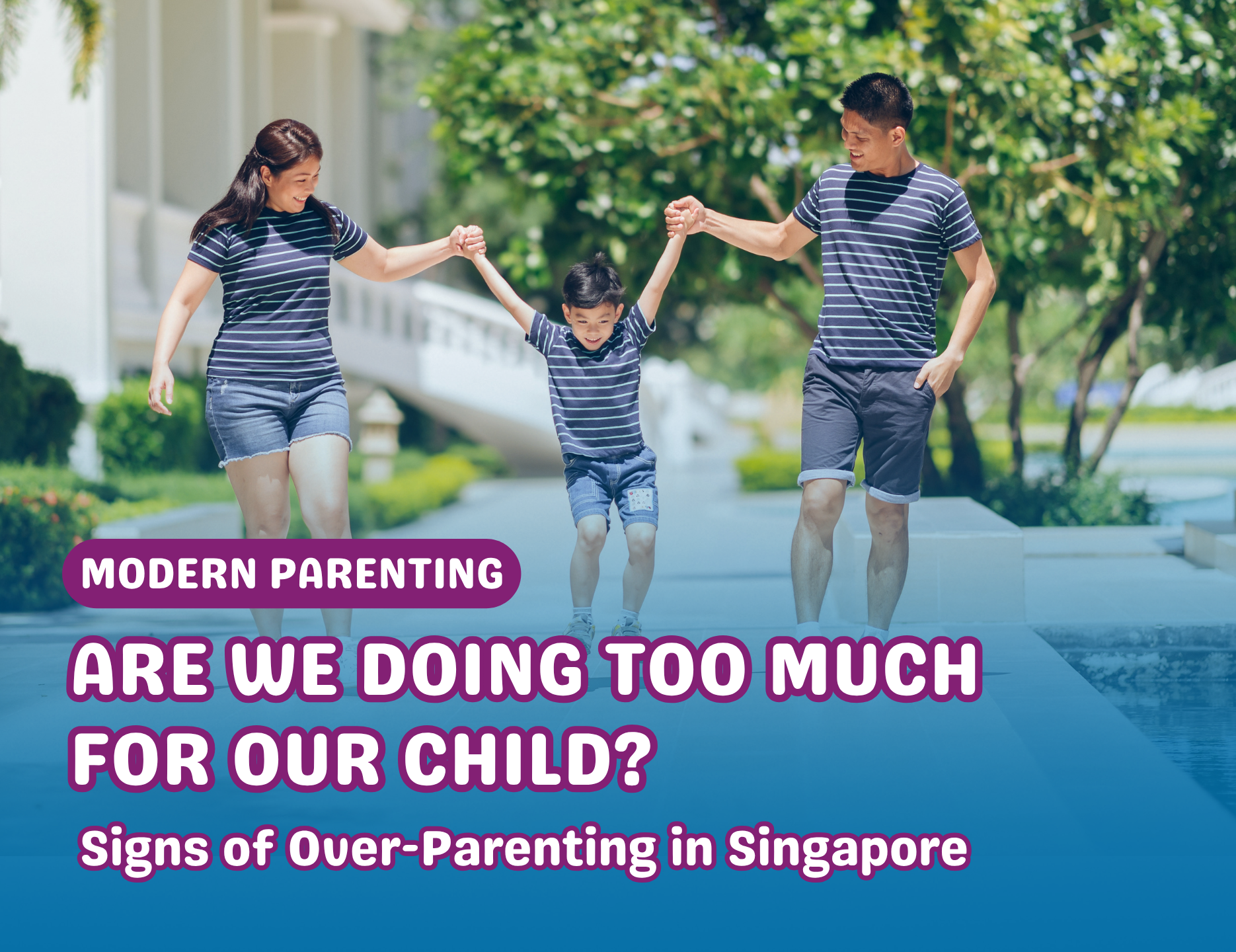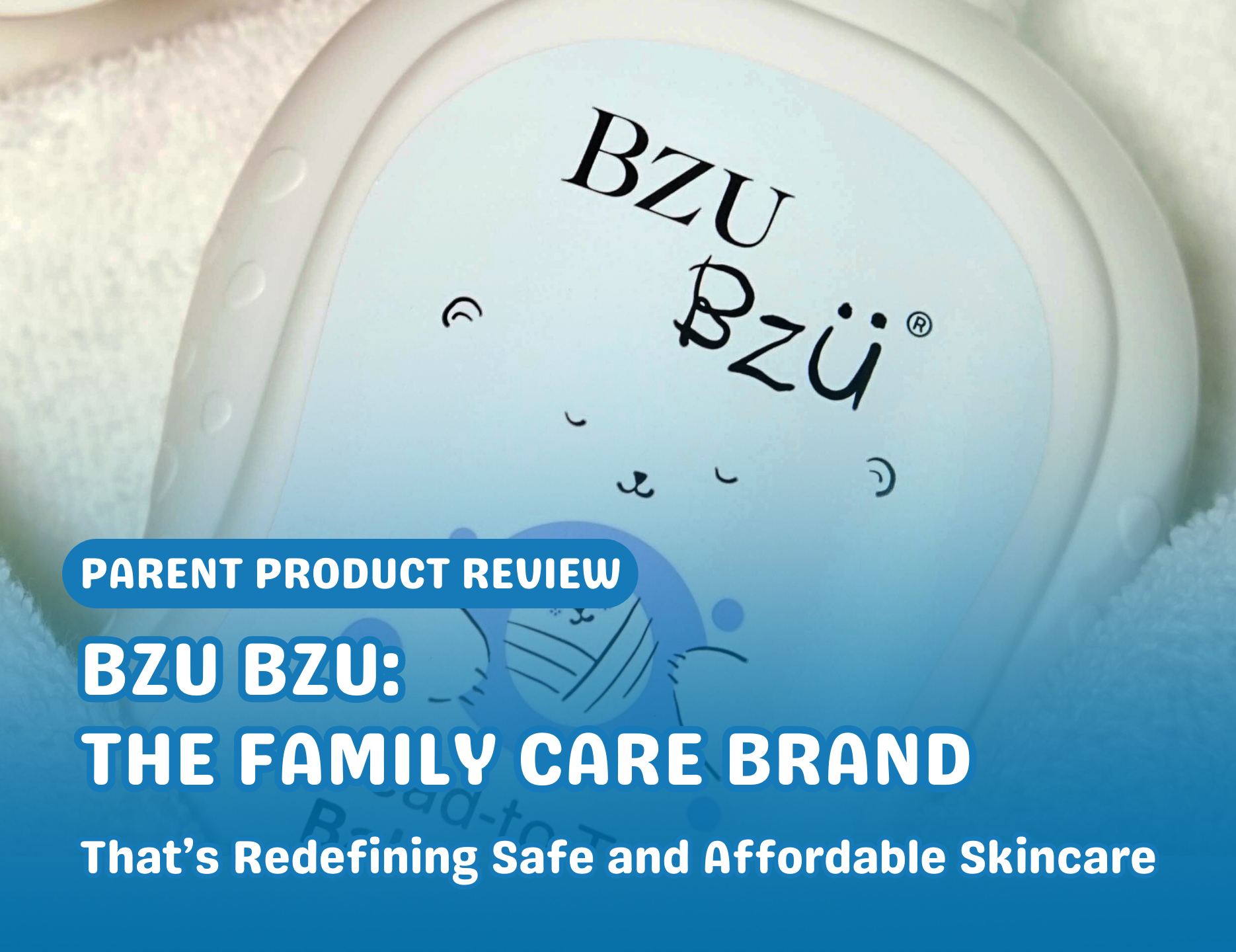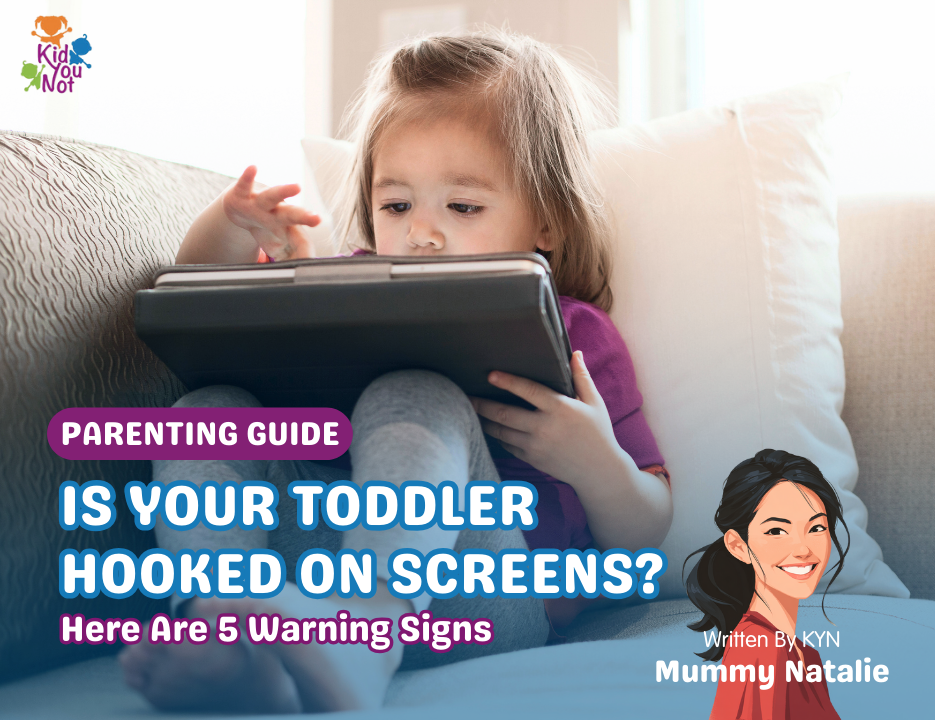In Singapore, parenting today often feels like a high-stakes project. We enrol our children in enrichment classes before they can spell their names. We pack their school bags, supervise their homework, and organise their schedules down to the minute. We do it all with love and with the belief that this is what good parenting looks like.
But increasingly, a quiet unease is setting in.
Despite being bright, well-supported, and high-achieving, many children are struggling with the basics of resilience, independence, and emotional regulation. They panic when things don’t go according to plan. They resist taking initiative. They crumble at failure. Are we doing too much for our children and too little with them?
This isn’t about being lazy or indulgent. It’s about a form of parenting that’s becoming the norm in Singapore, one that’s rooted in fear, pressure, and love. But it’s time to ask: what is this doing to our children in the long run?
What Is Over-Parenting?
Over-parenting isn’t just about “helicopter parents” hovering over every move. It’s a quieter, more culturally accepted pattern in Singapore: micromanaging, over-scheduling, solving problems before they arise. It comes from a place of care, but it often removes the space children need to try, fail, and grow.
In a society shaped by kiasu culture, where academic success is often viewed as the path to a good life, parenting has become hyper-involved. Add in the ease of domestic help and the desire to avoid stress, and many children grow up without having to do much for themselves.
How We Got Here
Many of today’s parents grew up under rigid expectations. We know what it’s like to be scolded for poor results, to be compared to others, to be told to “just study harder.” So we swing the other way, we try to protect our children from that same pressure.
But in doing so, we often overcompensate. We buffer every challenge. We solve every problem. We curate their childhoods like a résumé. And social media adds another layer of anxiety, every lunchbox, milestone, and meltdown feels like a performance.
What We’re Seeing in Our Kids
The result? Kids who are academically strong but emotionally under-equipped.
-
They panic at small mistakes.
-
They resist trying anything unfamiliar.
-
They rely on adults for direction, even in simple decisions.
-
They may score well but struggle with real-world problem-solving and self-confidence.
One recent Singapore study showed that intrusive parenting contributes to perfectionism and anxiety in children. And while 1 in 3 local youths shows signs of mental health distress, only 1 in 10 parents recognise it.
When we over-parent, we unintentionally send the message: “You can’t handle this.” Over time, they start to believe it.
So What Can We Do Differently?
We don’t need to swing to the other extreme and leave our kids completely on their own. Instead, we need to recalibrate to give them more space to grow while still offering support.
And that starts with this question:
What’s one thing I can stop doing for my child this week, so they can start doing it for themselves?
10 Practical Things You Can Stop Doing This Week
(So Your Child Can Start Growing)
Here are some small, everyday shifts that create big impact:
-
Stop packing their school bag
Let them do it. If they forget something once, they’ll likely remember next time. -
Stop solving their problems immediately
Instead, ask: “What do you think you could try?” -
Stop cleaning up after them
Even toddlers can put away toys or carry their plates to the sink. -
Stop filling every hour of their day
Unstructured time builds creativity and self-direction. -
Stop delivering forgotten items to school
Let them experience natural consequences, they won’t forget twice. -
Stop making every decision for them
Give small choices: “Banana or apple?” “Blue socks or white?” -
Stop mediating every conflict
Coach them to express needs and problem-solve on their own. -
Stop saying “Be careful” all the time
Instead, help them assess risk: “Is that surface slippery?” -
Stop hovering during homework
Let them struggle. Check in after they’ve made an attempt. -
Stop setting all the rules
Invite them to co-create family routines, shared ownership builds accountability.
Reframing Success
We often define success through scores, awards, and achievements. But what about grit? Self-regulation? The ability to bounce back from failure?
In today’s fast-changing world, the kids who will thrive are not necessarily the smartest they’re the ones who can adapt, persist, and take ownership of their lives.
Final Word from the KidYouNot Parent Team
You don’t have to overhaul your parenting overnight. Start with one thing. Let go of one task. Let your child take charge of one moment. The goal isn’t perfection, it’s progress.
Because sometimes, the most powerful thing we can do as parents… is to step back, and let them rise.
Want More Parenting Tips, Polls, and Deals?
Join the KidYouNot SG parenting community where modern parenting meets real talk and real support.
Follow us on Instagram and Telegram (@kidyounot.sg) for weekly insights, deals, and parenting inspiration.
Let’s navigate parenthood together!





